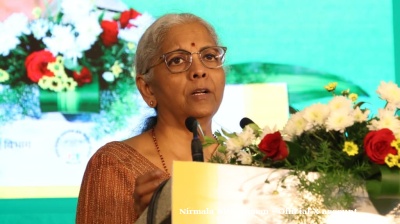Hungarian economists are casting doubt on the accuracy of the inflation reports compiled by statistics office KSH, according to leftist daily Nepszava. Together with the dismissal of a KSH official specialising in GDP data compilation last month for undisclosed reasons, this raises questions over the reliability of data provided by the national statistics agency, analysts warned.
Hungarian Prime Minister Viktor Orban in numerous interviews made it a priority to bring down inflation to single-digit territory by the end of 2023. The mission was accomplished a month earlier than projected as CPI fell steeply from 12.2% in September to 9.9% in October, below 10% for the first time since January 2022. Despite the strong disinflationary trends, Hungary still has the highest inflation rate in Europe, and the annual figure could average at 17-18% in 2023.
However, the reading just a tad below the threshold piqued the attention of analysts. Several leading Hungarian economists have questioned the methodology used by KSH in calculating changes in energy prices since mid-2022, when energy subsidies were partially lifted. They claim that headline inflation was over 11% in October when using the previous calculation.
The KSH data released on November showed that electricity, gas and other fuels became 16.1% cheaper, within which price of natural and manufactured gas was 33.5% lower on an annual basis.
Economists noted that the retail price of gas and electricity remained unchanged as the majority of households pay the subsidised price, while those consuming above the national average pay many times the market price, which has not changed since August 2022. Consumption however fell by at least 20% and in the KSH data, this decline translated into a lower price index, which experts say is distorting.
The change in methodology has caught the attention of the EU’s statistics office Eurostat, said Peter Rona, who was nominated for president by the joint opposition last year. The economist claims that the energy price index calculation of KSH shaved off 1.0pp off the headline data in October.
In related news, people familiar with the situation say that a leading KSH official, who had been in charge of compiling GDP data since 2006, was fired because of the unfavourable economic data released in the second quarter. Hungary’s economy shrank 2.4% y/y in the April-June period and by 0.3% on a quarterly basis, contracting for the fourth straight quarter. Sources told Telex.hu, that the KSH received "signals from above" that the agency was "not assisting the government's work".
After the 2022 election, the oversight of the KSH was transferred from the prime minister's chief of staff to Antal Rogan, who heads the Prime Minister's Cabinet Office. The former Budapest district mayor has become one of the most powerful ministers in the cabinet. The 51-year-old politician also oversees Hungary’s intelligence services and is in charge of government communication and propaganda.
According to independent media, Rogan regularly consults leaders of pro-government media on the cabinet’s communication narratives. Last month, the head of the liberal Momentum party saw three leading figures of the government-friendly media leave the Carmelite monastery in the Buda Castle, where Rogan's office is located next to that of the prime minister. The area has been cordoned off to block access for journalists to interview ministers arriving for the weekly cabinet meetings.
News

Bangladesh seeks death penalty for former Prime Minister Hasina
Bangladesh’s interim administration led by Nobel laureate Muhammad Yunus has requested the country’s criminal tribunal impose the death penalty on former Prime Minister Sheikh Hasina

Trump authorises CIA covert operations in Venezuela to topple Maduro
The White House has acknowledged granting the Central Intelligence Agency sweeping powers to conduct covert operations aimed at unseating President Nicolás Maduro, the NYT reported.

India’s finance minister to miss upcoming IMF and World Bank meetings
India’s Finance Minister Nirmala Sitharaman will not attend this week’s annual meetings of the International Monetary Fund and World Bank in Washington, as trade negotiations between New Delhi and Washington remain unresolved.

Young Ukrainians asylum seekers fleeing the war for Germany surges
The number of young Ukrainian fleeing the war and seeking asylum in Germany has surged, following Ukraine’s decision to partially lift its travel ban for men aged 18 to 22, according to figures from the German Interior Ministry.




